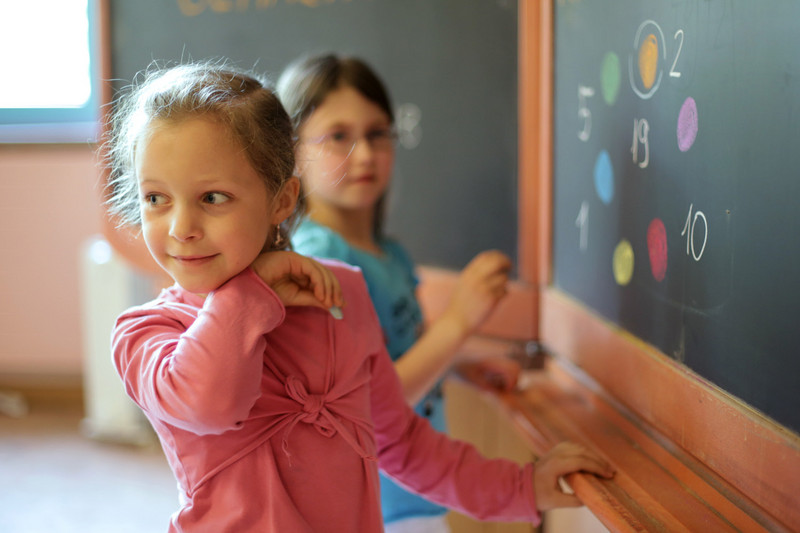A Positive Balance: Common-Good Economics in Schools

Responsible business practices include much more than incomes and expenditures. How transparent are corporate processes? Do suppliers work under fair conditions? Are the produced goods and offered services good for human beings and the environment? Economy for the Common Good, founded almost a decade ago by the Austrian activist Christian Felber, examines just these kinds of questions and has developed an alternative accounting method that evaluates whether an organization is really serving the common good.
In a pilot project initiated by the Software AG Foundation, the Waldorfschule Wetterau in Bad Nauheim has become the first Free School in Germany to produce this kind of common-good balance sheet and receive a corresponding certificate. “At the heart of the anthroposophical understanding of the human being and our pedagogical concept are values that have been, since the beginning, oriented towards the common good,” said Jana Theurer, the school’s manager. “With this project, we were able to make that explicit and to achieve recognition among the wider public using the value system of a related impulse,” added author and coordinator Birgit Brauburger. On the balance sheet, values such as sustainability, codetermination, and justice play a central role. The analysis considers all groups associated with the organization, including suppliers, employees, and customers, but also the wider societal context. The analysis, which covered the financial years 2015 and 2016 and which was carried out by an external auditor, delivered a very positive result: the school’s common-good balance was graded as being between “experienced” and “exemplary.”
This analysis is part of a comprehensive school development process in which the collegium, together with students and parents, is working on sustainable strategies for the school’s further development. In parallel, the responsible parties are documenting their work in a comprehensive Reader that can provide interested schools and other social institutions with valuable ideas and inspiration for their own balance sheets – and which also offers feedback for the further development of the common-good matrix. “The common-good economy is a strong change lever that can bring about developments on the economic, political, and social levels,” said Andreas Rebmann, the responsible project manager at the Software AG Foundation. “We are very pleased that the pilot project came to such a successful close and hope that many more educational institutions will be able to profit from the insights and be able to improve their common-good potential even further in the future.”
